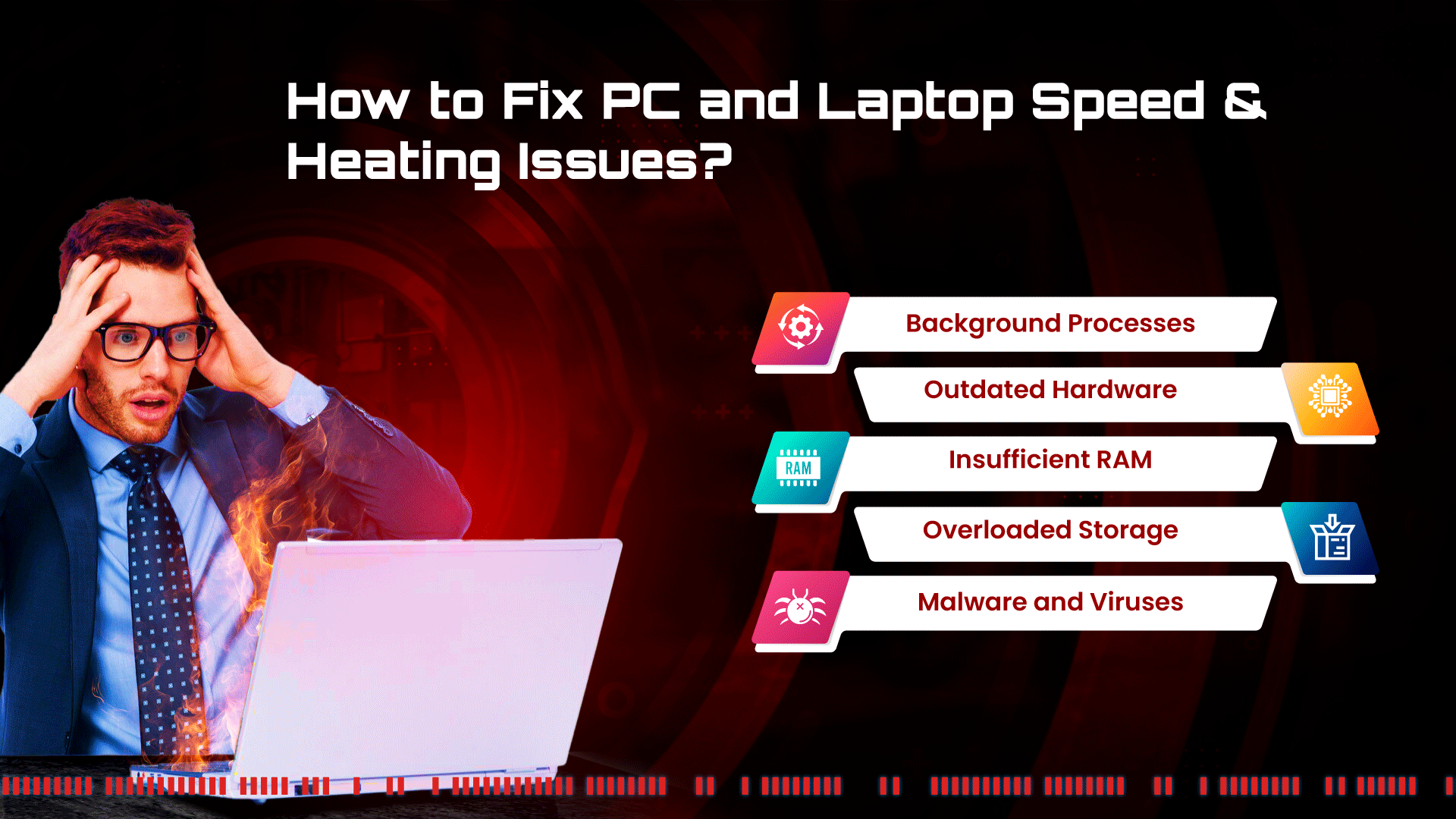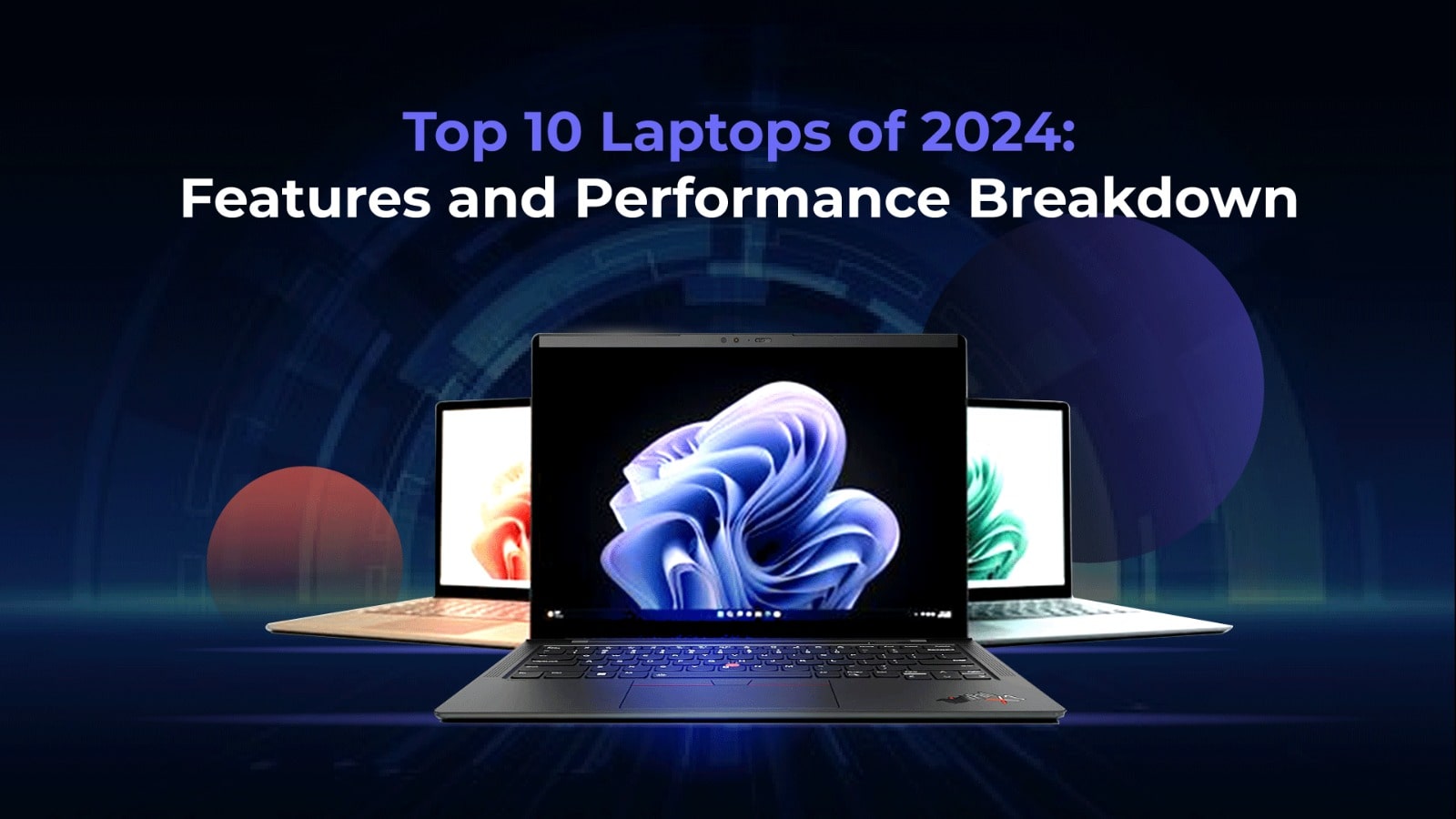Fast-paced digital era, demands high performance from your laptop. Choosing the right laptop is crucial for meeting your diverse computing requirements. Whether you’re a student, a professional, a creative artist, or a gaming enthusiast, selecting the perfect laptop involves considering various factors. In this guide, we’ll go through the important questions you should ask yourself and the seller to make sure you choose the right choice and discuss laptop setups for various professions.
How to choose the best laptop for all your needs?
1. What are Your Priorities?
Before diving into the technical aspects, identify your primary needs. Are you seeking a laptop for work, study, creativity, or gaming? Knowing your priorities will help narrow down the options and find a device that suits your lifestyle.
2. What is Your Budget?
Establishing a budget is crucial in the laptop selection process. Determine how much you’re willing to invest, keeping in mind that higher prices often correlate with better performance and advanced features.
3. Which Operating System Fits Your Preferences?
Consider the operating system that aligns with your preferences and requirements. Windows, macOS, and Linux each have their strengths and weaknesses, catering to different user preferences and software compatibility.
4. What Size and Portability Do You Need?
Choose a laptop size that complements your lifestyle. Smaller, lightweight laptops are ideal for frequent travellers, while larger screens may enhance productivity for content creators and professionals.
5. What about Performance and Processing Power?
The core of the laptop’s performance is its processor. For general use, an Intel Core i5 or AMD Ryzen 5 processor may suffice, but more demanding tasks like video editing or gaming may require higher-end options.
Which Laptop Configurations We Choose?
For Students:
– Configuration: Intel Core i3/i5/Ryzen 3, 8GB RAM, 256GB SSD
– Use: Efficient for studying, web browsing, and basic productivity tasks.
For Professionals:
– Configuration: Intel Core i5/i7, 8/12/16GB RAM, 512GB SSD
– Use: Suitable for multitasking, business applications, and data processing.
For Creatives:
– Configuration: Intel Core i7/Ryzen 7, 16GB RAM, Dedicated GPU, 1TB SSD
– Use: Ideal for graphic design, video editing, and 3D rendering.
For Gamers and Streamers:
– Configuration: Intel Core i7/i9 or AMD Ryzen 7/9, 16GB RAM, Dedicated Gaming GPU, 1TB SSD
– Use: Delivers optimal performance for high-end gaming experiences.
For Media and Movie/Video Editors:
– Configuration: Intel Core i9/Ryzen 9, 32GB RAM, Dedicated GPU (NVIDIA GeForce RTX or AMD Radeon), 1TB NVMe SSD
– Use: Video editing requires substantial computing power. A high-end processor, ample RAM, and a powerful GPU are essential for smooth timeline rendering and real-time previewing. An NVMe SSD significantly improves data transfer rates during video editing.
For Software Developers:
– Configuration: Intel Core i5/i7 or AMD Ryzen 5/7, 16GB RAM, 512GB SSD
– Use: Developers benefit from a fast processor and sufficient RAM for multitasking while coding. A large SSD accelerates compilation and software development tasks.
For Architects and 3D Modelers:
– Configuration: Intel Core i7/i9 or AMD Ryzen 7/9, 32GB RAM, Dedicated GPU (NVIDIA Quadro or AMD Radeon Pro), 1TB SSD
– Use: Architectural design and 3D modelling demand both CPU and GPU power. A dedicated professional-grade GPU enhances the performance in CAD applications and 3D rendering.
For Data Scientists and Analysts:
– Configuration: Intel Core i7/i9 or AMD Ryzen 7/9, 32GB RAM, 1TB SSD
– Use: Data-intensive tasks require a powerful processor and ample RAM for handling large datasets. A spacious SSD ensures quick data access and manipulation.
6. How Important is Battery Life?
Consider your mobility needs. If you’re frequently on the move, opt for a laptop with a longer battery life. Thinkpads and laptops with energy-efficient processors often excel in this department.
7. What Connectivity Options Do You Require?
Evaluate the laptop’s connectivity features, including USB ports, HDMI, Thunderbolt, and Wi-Fi capabilities. Ensure the laptop can accommodate your peripherals and external devices.
8. Is Display Quality Crucial?
The display is your primary interface. Higher resolution, colour accuracy, and features like touchscreens or high refresh rates may be essential, especially for content creators and gamers.
9. What Additional Features Matter to You?
Consider extra features such as backlit keyboards, biometric authentication (fingerprint or facial recognition), and 2-in-1 capabilities if they align with your preferences.
Conclusion: choosing the best laptop for your needs is a multifaceted process that requires careful consideration of your priorities, budget, and intended usage. By addressing fundamental questions about operating systems, size, performance, and additional features, you can tailor your laptop selection to suit your lifestyle. The provided laptop configurations for different fields offer a roadmap for meeting specific professional demands. Remember, finding the perfect laptop is about striking the right balance between power and portability, ensuring that your device becomes an indispensable tool for your endeavours in work, study, creativity, or gaming. Make an informed choice to empower your digital experience.










